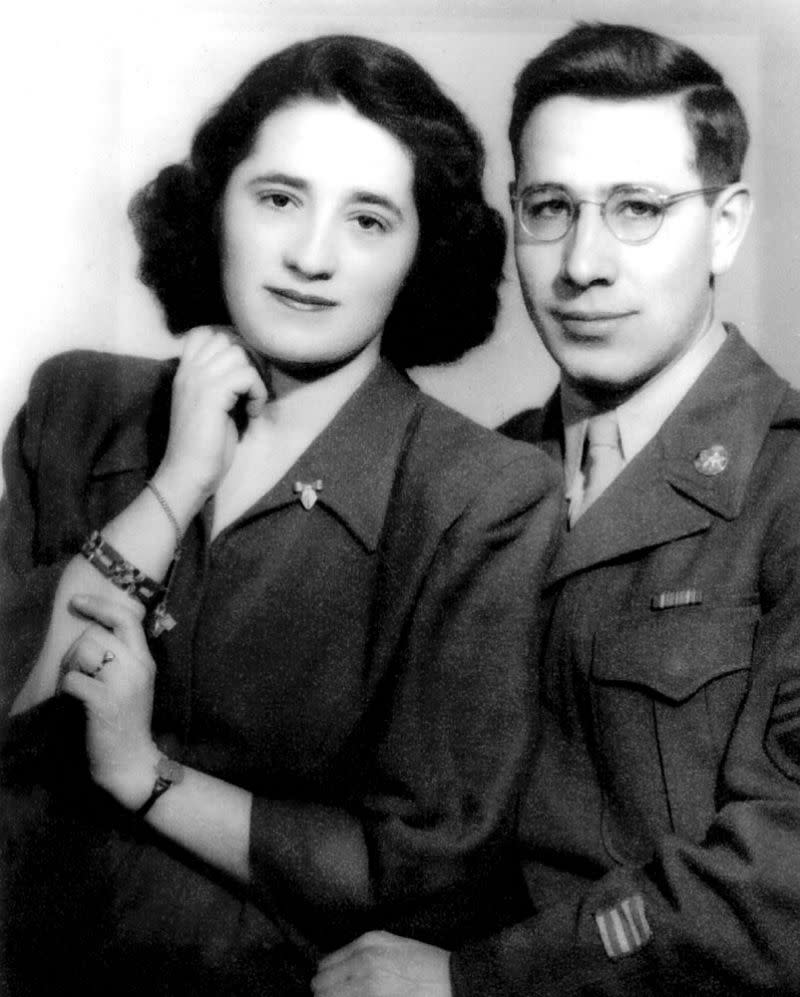Can you actually die from a broken heart?

Iconic handbag designer Judith Leiber was 97 when she had a heart attack and died recently — just hours after her beloved 96-year-old husband, Gerson, similarly passed away himself.
Married for 72 years, they were both at their New York State home when they died.
“Sweetie, it’s time for both of us to go,” Gerson apparently said to his wife on the night of April 27, according to his obituary in the New York Times.
And so they went, lending credence to the expression that you can “die of a broken heart.”
There are many other examples of people who have passed not long after losing someone they love dearly. Take Johnny Cash, who died four months after the love of his life, June Carter Cash, died in 2003.
“After June died, he was prepared to die,” producer Rick Rubin later told the Associated Press.
ALSO SEE: Handbag designer Judith Leiber dies hours apart from husband of 72 years: ‘It’s time for us to go’
The death of Carrie Fisher late in 2016 seemed to be too much for the actress’s mom to bear; Debbie Reynolds died a day later.
While it’s rather tricky to prove cause and effect, dying of a broken heart may have some science to it.
The term “broken-heart syndrome” is actually known as stress-induced cardiomyopathy or Takotsubo cardiomyopathy. Discovered in Japan more than two decades ago, the condition is typically associated with an emotionally or physically stressful event, such as the sudden loss of a loved one, major surgery, or experiencing a natural disaster. The theory is that a surge of stress hormones leads to the weakening of the heart muscle.
Furthermore, the death of a partner is linked to an increased risk of developing atrial fibrillation — a form of irregular heartbeat that’s a risk factor for stroke and heart failure — for up to a year afterward, according to a 2016 Danish study published in the journal Open Heart.
The risk appeared to be greatest among people under age 60 and when the loss of the partner was least expected. The research also found that the risk was highest eight to 14 days after the loss — 90 per cent higher than average, in fact.
ALSO SEE: A broken heart can last forever, says science
University of British Columbia nursing professor Sally Thorne, who’s associate dean in the faculty of applied science, has studied what can be learned from the patient perspective of living with cancer and chronic illness. In some cases, there are physiological explanations for such a death, she notes; for instance, those who are already on a dying trajectory can hasten their own passing by rejecting fluids and nutrients. And given that profound grief is such a shock to the body, where there are pre-existing conditions such as diabetes or various cardiac problems, grief can trigger a physical vulnerability that could tip the balance.
However, some things simply can’t be explained, interpreted, or documented by scientific method.
“Wonderful and poignant stories like this [the Leibers’] are out there, and I think they represent for us the yearning of those who are deeply in love that neither should have to live without the other,” Thorne says. “People celebrate the idea of two people who die so close together as a realization of that yearning, and so they are stories that have meaning.
“Experientially, patients very much understand the effect of life and context and feelings on their health situation and such unknowns—until we had medical assistance in dying—as the timing of death,” Thorne adds. “And so they theorize and make meaning of what they and others go through. From that perspective, dying of a broken heart makes tremendous sense, and perhaps that is where we should leave it—as a way of feeling about and sense-making about life’s mysteries.”
Let us know what you think by commenting below and tweeting @YahooStyleCA!
Follow us on Twitter and Instagram.



